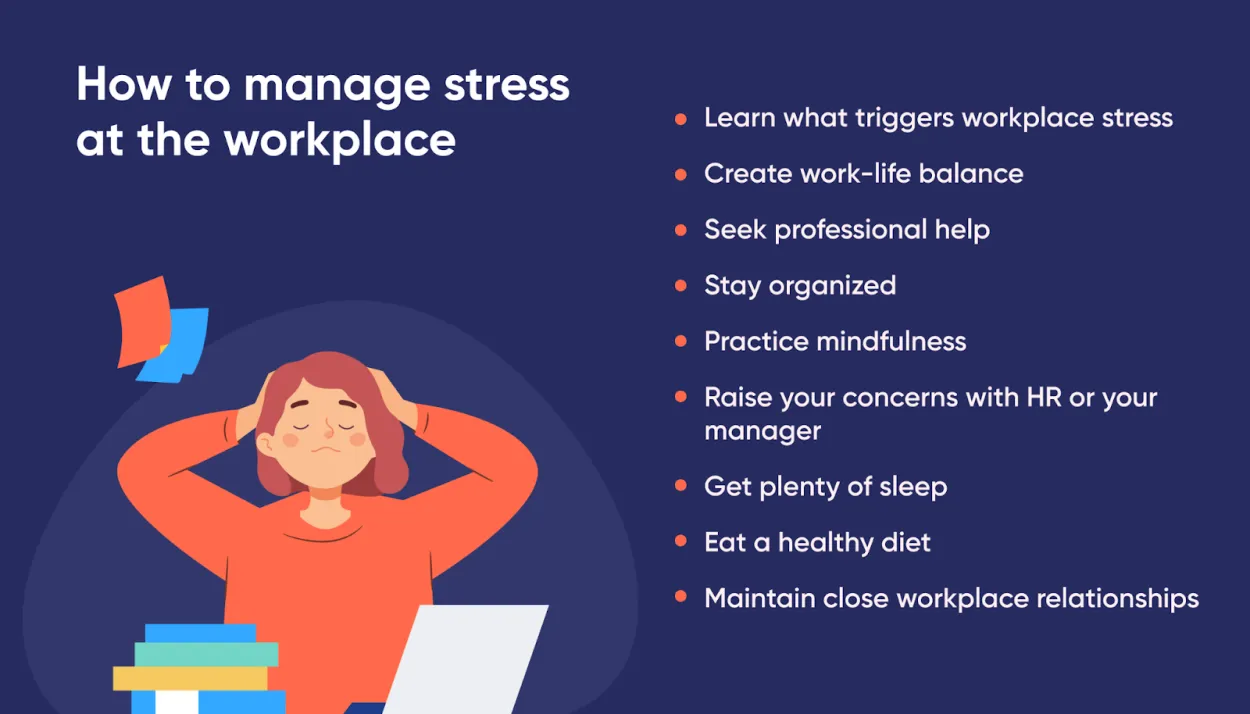In today’s fast-paced and demanding work environment, stress has become a common companion for many professionals. However, effectively managing stress is crucial in order to maintain a productive career. In this article, we will explore a variety of stress management techniques that can help individuals thrive in their professional lives.
The Link Between Stress and Work Performance
Stress is an inevitable part of our lives, especially in the fast-paced world of careers. It affects not only our well-being but also our work performance. The connection between stress and work performance cannot be ignored.
When stress levels are high, our ability to concentrate and focus on tasks decreases. We become easily overwhelmed, making it difficult to prioritize and complete assignments effectively. This can lead to lower productivity and quality of work.
Moreover, stress can also affect our decision-making skills. Under high levels of stress, we tend to make impulsive decisions or have difficulty making decisions at all. This can have negative consequences for our career advancement and the success of our projects.
Furthermore, stress can significantly impact our physical and mental health. Chronic stress can lead to burnout, fatigue, and increased absenteeism. It can also contribute to the development of anxiety and depression, further affecting our work performance.
To ensure a productive career, it is essential to implement effective stress management techniques. These may include:
- Work-life balance: Establishing clear boundaries between work and personal life can help reduce stress and improve overall well-being.
- Time management: Properly managing time and prioritizing tasks can enhance productivity and reduce stress levels.
- Physical activity: Engaging in regular exercise can alleviate stress, improve mental clarity, and boost work performance.
- Relaxation techniques: Practices like deep breathing, meditation, and mindfulness can help calm the mind and reduce stress.
- Support system: Building a strong support network, both personally and professionally, can provide guidance and assistance during challenging times.
By implementing these stress management techniques, individuals can effectively cope with stress and improve their work performance. It is crucial to prioritize self-care and well-being to have a successful and fulfilling career.
Proven Stress Management Techniques for a Balanced Career
In today’s fast-paced work environment, managing stress is crucial for maintaining a productive and fulfilling career. By incorporating these proven stress management techniques into your daily routine, you can find balance and maintain your mental well-being:
1. Practice Mindfulness
Engage in activities that promote mindfulness, such as meditation or deep breathing exercises. This can help you stay present and focused, reducing stress and improving overall well-being.
2. Prioritize Self-Care
Make time for self-care activities, such as exercising, getting enough sleep, and eating a healthy diet. Taking care of your physical and mental health is essential for managing stress effectively.
3. Set Realistic Goals
Avoid overwhelming yourself with unrealistic expectations. Set achievable goals and break them down into smaller tasks. This way, you can reduce stress and increase productivity.
4. Establish Boundaries
Learn to say no and set boundaries to prevent work-related stress from spilling into your personal life. Setting clear limits on your time and energy can help you maintain a healthy work-life balance.
5. Take Breaks
Regularly take short breaks throughout the day to recharge and refresh your mind. Engaging in activities you enjoy during these breaks can help reduce stress and increase overall productivity.
6. Seek Support
Don’t hesitate to reach out for support when needed. Whether it’s talking to a trusted friend or seeking professional help, having a support system in place can make a significant difference in managing stress.
The Benefits of Mindfulness in Reducing Work-Related Stress
Mindfulness has increasingly gained attention as an effective technique for managing stress, particularly in the workplace. In today’s fast-paced and demanding career environment, individuals often find themselves overwhelmed with work-related stress. This article explores how mindfulness can help alleviate such stress and promote a productive career.
Mindfulness involves being fully present in the present moment and paying attention to one’s thoughts, feelings, and sensations without judgment. By incorporating mindfulness practices into their daily routine, professionals can experience numerous benefits:
-
Reduced Stress Levels:
Mindfulness enables individuals to observe their stress triggers and respond to them in a calm and measured way. It helps in reducing anxiety, promoting relaxation, and increasing resilience to stressors.
-
Improved Focus and Concentration:
Regular mindfulness practice enhances attention and concentration, allowing professionals to stay focused on tasks at hand. This increased cognitive ability leads to higher productivity and efficiency in the workplace.
-
Better Emotional Regulation:
Mindfulness cultivates emotional intelligence by fostering self-awareness and improving the ability to manage emotions. This skill is crucial for handling workplace conflicts, maintaining healthy relationships, and staying composed under pressure.
-
Enhanced Problem-Solving Skills:
Engaging in mindfulness activities enhances creative thinking and problem-solving abilities. By reducing mental clutter and promoting clarity, individuals can approach challenges with a fresh perspective, leading to innovative solutions.
Implementing mindfulness techniques can be done in various ways, such as practicing meditation, deep breathing exercises, or taking short breaks during the workday to focus on the present moment. By incorporating mindfulness into their routines, professionals can achieve a more balanced and fulfilling career.
Conclusion
In conclusion, adopting effective stress management techniques is crucial for maintaining a productive and successful career. By practicing mindfulness, prioritizing self-care, seeking support, and implementing time management strategies, individuals can effectively reduce stress and increase their overall well-being in the workplace. By taking steps to manage stress, individuals can enhance their productivity, improve their career performance, and achieve long-term success.




